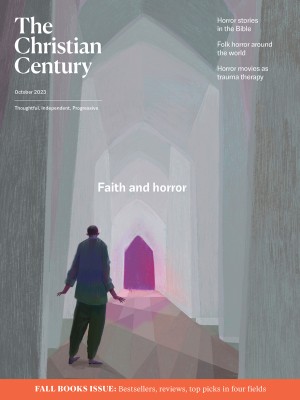October 1, Ordinary 26A (Philippians 2:1-13)
Paul’s words about humility should be handled with care.
I wonder if another word for “empty conceit”—rendered in other translations as “vain conceit” or “vainglory”—would be “narcissism.” Paul wants to tell the faith community in Philippi that no one is served when some seek their own self-aggrandizement rather than the collective good of the community. In Paul’s vision of a healthily interdependent, interconnected, love-centered people, there is no room for narcissistic attitudes or behavior. There is only mutual care, mutual support, mutual concern, mutual love.
Aiming for this kind of community, Paul’s words about humility should be handled with care: words about imitating Christ, emptying ourselves, taking the form of a servant. Humbling ourselves, obedient even to the point of death. Regarding others as better than ourselves. Looking to others’ interests, not our own. These instructions can easily be twisted to perpetuate injustice rather than birth justice, as people with more power inflict them on people with less power to justify the status quo. I don’t think Paul intended this.
Read our latest issue or browse back issues.
Paul’s broader hopes for the church in Philippi can ground our understanding of what Paul does and doesn’t mean when he urges people toward humility. What does Paul want for these people, whom he remembers with such deep joy and gratitude (1:3–5)? He wants their love to overflow (1:9). He wants them to stand firm in the face of outside threats (1:27–30). He trusts that their lives are marked by comfort in Christ, by consolation in love, by partnership in Spirit, by tender compassion and mercy (2:1). He wants them to shine like stars (2:15). Any interpretation of self-emptying, self-humbling, or looking to others’ interests, then, should move in these directions—for all people, and especially for those society has already humbled a little too much.
Many Greek texts include a crucial word in verse 4 that does not appear in some English translations. This word can be translated as “also.” With also included, the verse reads something like this: “Each of you not considering your own interests but also the interests of each of the others.” We live in a world where some of us—often those privileged by various power structures—have been socialized to look out too much for our own interests at others’ expense. Conversely, others of us have been trained to look out only for the interests of others at our own expense. But a truly harmonious community—a community of comfort, encouragement, consolation, and strength—calls for balance: each one looking to others’ needs while also not ignoring their own.
Maybe this is what self-emptying looks like—not that we make ourselves nothing, as some English versions translate verse 7, but that we empty ourselves both of arrogance and of self-belittlement. That those of us tempted toward narcissism are met with loving accountability from our communities. And those of us tempted to think our own needs aren’t important find joy and true fellowship with those who consider our concerns essential.
In Feminist Theory, bell hooks shares this vision of community as she critiques an “idea of independence perpetuated by the imperialist patriarchal state which equates independence with narcissism, and lack of concern with triumph over others.” Hooks calls on feminist movements to work to undo the “dominant ideology of the culture,” not just invert it so that women are in power. The goal is not to redraw the lines of existing hierarchies but to build a new kind of community entirely. This is what Paul wants: a community where everyone’s interests are looked to and everyone’s needs are taken care of, where everyone offers what they have to offer freely and shares resources with one another (à la Acts 2:43–47).
Faith communities can, as Australian Aboriginal scholar Tyson Yunkaporta writes in Sand Talk, seek to build a “social contract of reciprocity”—one “which allows people to build a reputation of generosity based on sharing to ensure ongoing connectedness and support.” People operating as narcissists, Yunkaporta writes, “[shatter] this framework of harmony” as they “apply double standards and break down systems of give-and-take until every member of a social group becomes isolated, lost in a Darwinian struggle for power and dwindling resources that destroys everything.” This narcissism is what Paul wants to root out of the church in Philippi when he urges people of faith to follow Christ’s example of humility. The goal is mutual give-and-take. Healthy reciprocity. Freely offered generosity. Ongoing connectedness.
This communal harmony comes through justice: every voice being heard, every need being met, all people operating as equals. We are not meant to be nothing. Neither are we meant to be narcissists. We are meant to learn to live together across societal power differentials in communities of love, trust, and mutual care.





